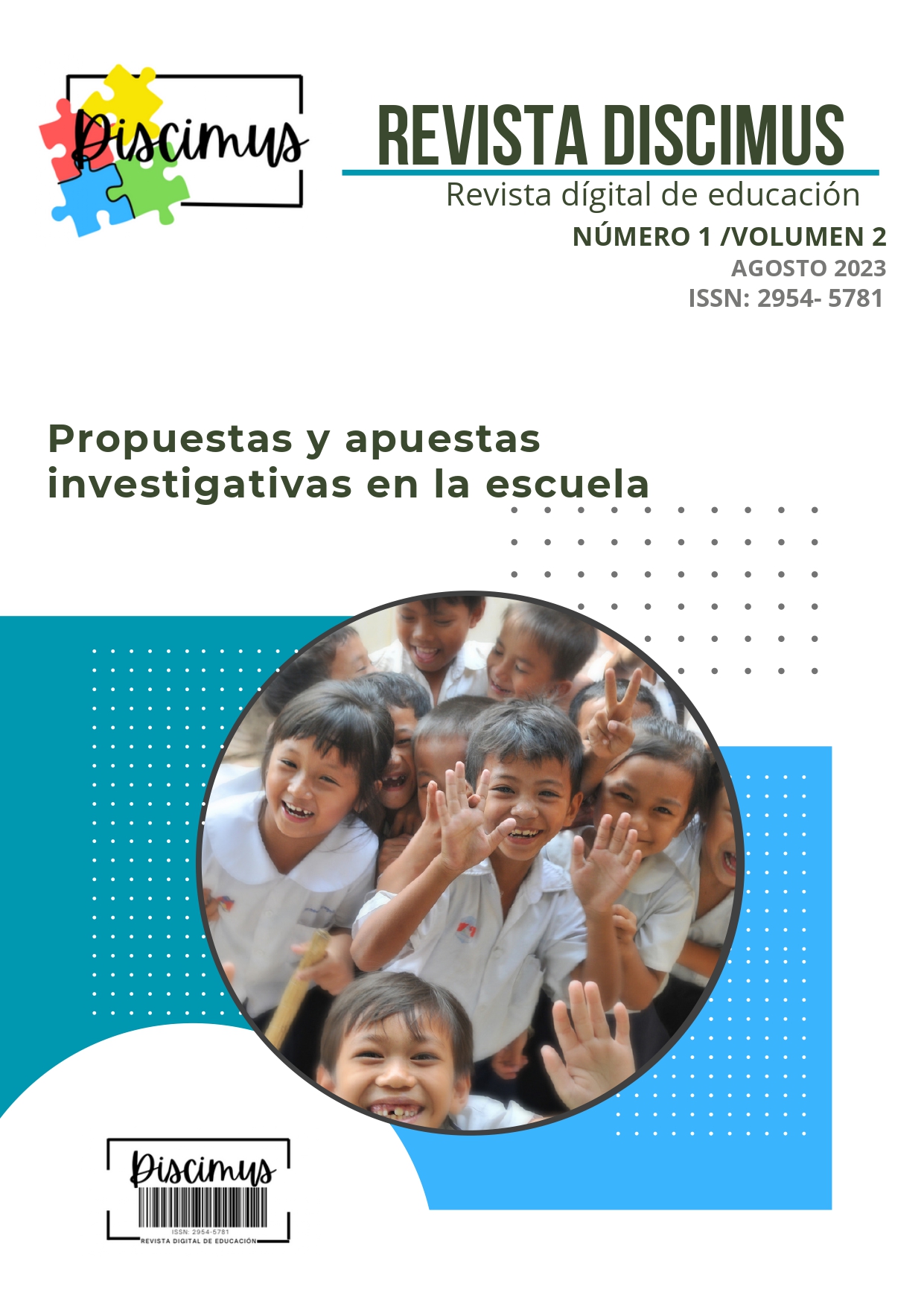The consolidation of a stable and lasting peace, challenges for schools according to the recommendations made by the truth commission in the final report.
DOI:
https://doi.org/10.61447/20220601/UMPv21005Keywords:
peace, Curriculum, didacticsAbstract
This article will address a serious reflection on violence, its networks that have crossed borders, the distortion of its actions, on the one hand, reaching levels of barbarism and frightening degradation; and naturalization by assuming it, on the other, in the various levels of society. The school understood from the various tensions that make it up has addressed the issue of peace, an activity that has cost the lives and integrity of thousands, daring to speak the truth, until a few months ago, seemed like a very serious offense, a crime that should be be paid as a “war crime”. Today, on the contrary, with the favorable social climate, in an atmosphere of hope and change in Colombia, speaking of truth is an obligatory task, because, as will be presented in the following pages, the recommendations presented in the Report of the Commission of the Truth for the educational sector, they must display a critical look and a strong commitment towards ourselves.
Downloads
References
Presidencia de Colombia,(2022).Hay futuro si hay verdad, informe final, Comisión para el esclarecimiento de la verdad, la convivencia y la no repetición, (Informe final, hallazgos y recomendaciones, 2022).
Cajiao, F., (2004). La concertación de la educación en Colombia. Revista Iberoamericana de Educación, (34), 31 – 47.
Caro y Reyes (2021). Educación pública y proceso constituyente en Chile. Hacia lo estatal – comunitario como un nuevo orden constitucional, para la educación del siglo XXI. Fumando Opio II, 151- 173.
Congreso de la República de Colombia. (8 de febrero de 1994). Ley General de Educación. [Ley 115 de 1994]. DO: 41.214
Congreso de la República de Colombia. (1 de septiembre de 2014). Por la cual se establece la Cátedra de la Paz en todas las instituciones educativas del país. [Ley 1732 de 2014].
Cristancho, A., (2019). Implementación de la cátedra de la paz: estudio de caso del municipio de Sopó [Trabajo de grado, Universidad Militar Nueva Granada]. Repositorio institucional Unimilitar https://repository.unimilitar.edu.co/bitstream/handle/10654/32240/cristanchoangie2019.pdf?sequence=2&isAllowed=y
Sáenz, M., y Ortiz, J., (2019), Estado del arte sobre la cátedra de la paz en las instituciones escolares colombianas [Trabajo de grado, Universidad Santo Tomas]. Repositorio institucional USTA https://repository.usta.edu.co/bitstream/handle/11634/21247/2019ayalaeilat.pdf?sequence=1&isallowed=y
Huertas, L., y Ramos, C., (2017), Educación y paz: la eficacia de la cátedra de la paz en Bogotá. el caso de la localidad 4° San Cristóbal durante el 2016 [Trabajo de grado, Universidad La Gran Colombia]. Repositorio institucional UGC https://repository.ugc.edu.co/bitstream/handle/11396/5260/Eficacia_c%C3%A1tedra_paz_Bogot%C3%A1.pdf?sequence=1

Downloads
Additional Files
Published
Issue
Section
License
Copyright (c) 2023 Cruz León Erika Liliana (Autor/a)

This work is licensed under a Creative Commons Attribution-NonCommercial-ShareAlike 4.0 International License.
Open Access Policy at Discimus Journal
Discimus Journal is committed to the promotion of free circulation of scientific and academic knowledge, simultaneously ensuring appropriate acknowledgment for our authors while adhering to the ethical principles of scientific publishing. In alignment with this goal, Discimus publishes all its articles under the ATTRIBUTION-NONCOMMERCIAL-SHAREALIKE 4.0 INTERNATIONAL CC BY-NC-SA 4.0
What does this imply for authors, readers, and the scientific community?
1. Usage Freedom: Under the license CC BY-NC-SA 4.0, anyone is allowed to share (copy and redistribute the material in any medium or format) and adapt (remix, transform, and build upon the material) the articles published in Discimus, for any purpose, including commercially.
2. Attribution: Users must give appropriate credit, provide a link to the license, and indicate if changes were made to the original work. This credit must include the author's citation, the article title, the publication in Discimus, and, if feasible, the DOI of the article. This attribution should not in any way suggest that the authors or Discimus endorse the use made of the work.
3. Share Alik: If users remix, transform, or build upon the material, they must distribute their contributions under the identical license as the original.









